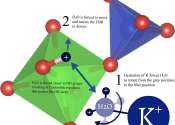Individuals feel sex-specific symptoms before impending cardiac arrest, study finds
Investigators from the Smidt Heart Institute at Cedars-Sinai are one step closer to helping individuals catch a sudden cardiac arrest before it happens, thanks to a study published today in The Lancet Digital Health journal.
Aug 26, 2023
0
546









